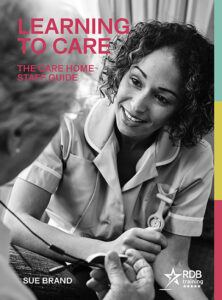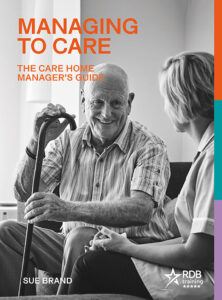
Women are bearing the brunt of the Government’s inaction on social, with ‘sandwich carers’ especially badly hit, Age UK has said.
On International Women’s Day 2019 (8 March) Age UK warned that women are generally being hurt the most by the lack of care and support.
‘Sandwich carers’ are under particular pressure and 68% are women.
The 8 March marked the second anniversary of the Government’s broken promise to fix social care with a Green Paper.
Age UK is warning that it is women who are generally paying the highest price for the Government’s continued inaction on social care.
‘Sandwich carers’ are those who care for one or more under-16 year olds as well as a parents or other older relative with care needs.
The carers are one of the group hit hardest of all and are often under huge stress. Age UK has said the overwhelming majority of sandwich carers are women and they face horrible choices in trying to juggle their caring commitments with working, or giving up work and sacrificing their own financial interests as a result.
In a new report, ‘Breaking Point: The social care burden on women’ was published to coincide with International Women’s Day, Age UK sets out the enormous challenges facing many women who are carers.
The report shows how women are going above and beyond to care for loved ones because good, reliable social care support simply isn’t there for them. It also shows this is no small problem and the impact on women who are sandwich carers is often especially severe.
Caroline Abrahams, charity director at Age UK, said: “Two years on from the Government’s promise to fix social care with a reforming Green Paper also marks International Women’s Day, and it is women who are often paying the highest price for Ministers’ failure to act.
“Our new analysis shows there are over a million ‘sandwich carers’. almost all of whom are women, and they are one of the groups hit hardest by the lack of good care and support.
“Given the intense pressure on them it’s amazing that more don’t experience a break down, but there’s no doubt many are coping with much more than it is reasonable to expect. Most carers care willingly but they need more help than they receive, plus the chance for regular breaks.
“The Green Paper has been delayed five times now – it’s beyond a joke. The cost of delay is very real and is falling on millions of disabled and older people who are going without the support they need, and on their carers like those in our report who are doing everything one could possibly ask and more, and risking their health, wellbeing and financial security as a result.
“If the Government is serious about advancing the interests of women in our society one of the ways it can best help is by sorting out social care, once and for all. We need a definite date for publication of the Green Paper and strong cross Government support for social care reform – including money from the Treasury to pay for it.”
The report’s analysis of sandwich carers found:
There are 1.25 million sandwich carers in the UK. These are people caring for an older relative as well as bringing up one or more children aged under 16. 68% – 850,743 are women.
Sandwich carers ages range from 20s-60s, but those age 35-44 are the most likely to be carers, with more than a third (35%) of all sandwich carers being in this age group.
Three quarters (73%) of sandwich carers provide under 10 hours of caring a week and one in fourteen (7%) over 35 hours per week – that’s 88,391 sandwich carers providing more than 35 hours of care to loved ones each week.
Eight out of ten (84%) sandwich carers providing over 35 hours per week are women – that’s 74,399 women providing more than 35 hours a week of care to loved one while also raising a family.
The oldest sandwich carers (55-64) provide the most care the most, with three in ten (29%) of this age group providing more than 20 hours of caring a week.
In total, three quarters (78%) of sandwich carers are in paid work, and even among sandwich carers providing 35 or more hours of care a week, half (49%) are working.
Helen Walker, chief executive of carers UK, said: “With our crumbling social care system additional stress is being placed on carers around the country who are trying to juggle children, work and older relatives. They are time-poor and under huge pressure, with many reporting symptoms of mental ill-health.
“The strain of sandwich caring also takes a particular toll on women’s ability to work and their finances. Women are four times more likely than men to have given up work because of multiple caring responsibilities and many have seen a negative impact on their ability to afford household bills.
“It is vital the Government delivers high quality and affordable care services which support older and disabled people, giving sandwich carers the ability to better manage work and caring responsibilities. They must also receive the practical and financial support to care so they don’t have to put their own lives on hold.”
Sally Copley, director of policy and campaigns at Alzheimer’s Society, said: “This latest data reinforces the extent to which hundreds of thousands of people, predominantly women, are propping up a broken care system.
“People with dementia are the biggest recipients of social care, so they are disproportionately affected. Two thirds of carers are women, and we know they are more likely to have depression or to give up work too.
“Through our Fix Dementia Care Campaign, we have heard from many who have been worn down emotionally, physically and financially trying to juggle the extra pressures of being a sandwich carer. One woman looking after two autistic children and her mother with dementia told us she had to be signed off sick because she was experiencing mental health issues as a result.
“People with dementia and their loved ones are struggling needlessly. We need the Government to make bold reform and place significant investment in social care. Otherwise people with dementia and their carers will continue to shoulder the catastrophic cost.”








